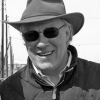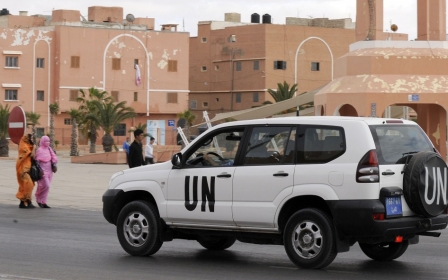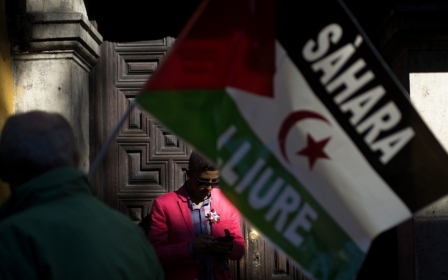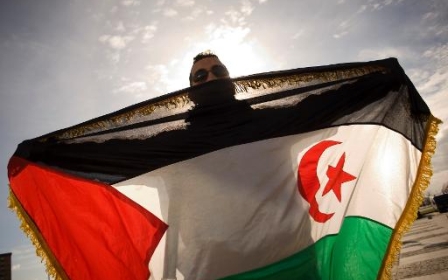Algeria shirks rights spotlight in Western Sahara
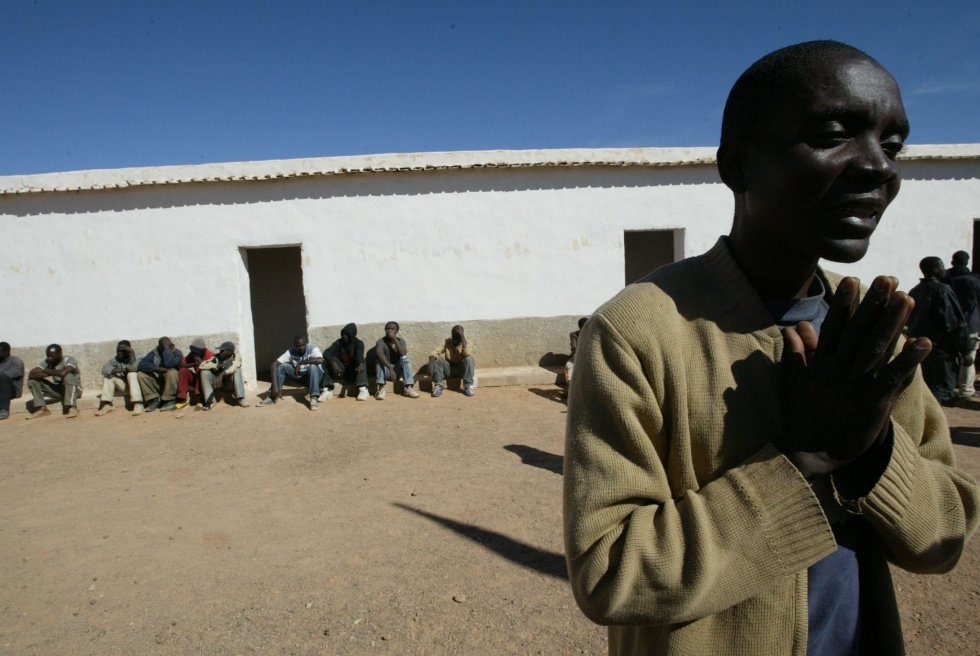
The UN Security Council’s (UNSC) decision on 29 April not to include human-rights monitoring in the new mandate of its peacekeeping mission in the disputed territory of Western Sahara has been widely portrayed as a “victory” for Morocco and a “defeat” for Algeria.
Prior to the UNSC’s vote on the subject, there had been some expectations that the UNSC might follow the recommendations in UN Secretary General Ban Ki-Moon’s recent report on the territory. But, after strong lobbying by Morocco’s King Mohamed VI, Morocco’s diplomatic corps, and, so it is said, France and the US, the UNSC voted unanimously to steer away from the contentious matter of human rights.
Morocco will certainly be relieved that the UN mission will now not be monitoring its human-rights abuses in the disputed territory. That will be left, as before, to the Sahrawis themselves, “Western Sahara watchers” and those elements of the world press that still keep half an eye on the region.
While Morocco may be off the hook, this should not be seen as a “defeat” for Algeria. Although Algeria has been making much ado over the last six months about Morocco’s human-rights abuses in the Western Sahara, the Algerian regime may well be breathing a considerable sigh of relief.
The reason for that is quite simple: if Morocco were to be the subject of human-rights monitoring, then the Kingdom would insist that similar monitoring be undertaken on the Algerian side of the fence, namely within the “Polisario-run”, Sahrawi refugee camps in Tindouf, West Algeria. If that were to happen, things could get very tricky for the Algerians.
The latest Algerian-Morocco spat, this time over human rights, began last year when Algeria’s President Bouteflika told the African Conference of Solidarity with the Saharawi people, held in Abuja on 28 October, of the need to establish an international mechanism for monitoring human rights in Western Sahara.
Bouteflika said such a mechanism was needed “more than ever”, to address “the massive and systematic human-rights violations that take place inside the occupied territories to suppress the peaceful struggle” of the Sahrawis for freedom of expression and association.
While human-rights abuses in Western Sahara by Morocco usually get good international media coverage, what happens in the Tindouf camps belongs to a hidden, barely accessible world. Indeed, a focus on human-rights abuses within the camps would raise issues and questions that neither the Polisario nor Algeria would like to have aired, let alone answered.
To start with, it is not known precisely who is living in the camps. Algeria has never allowed the identification and registration of the camp populations. They are the only refugees in the world not to have been identified, 40 years after settling there.
Explanations are also required as to why the camps have since January been in a state of lock-down enforced by Polisario guards and Algerian army reinforcements. There have been reliable reports of protests and an uprising in the camps following the 5 January massacre by the Algeria army of Sahrawi citizens at Ouediane Tetrat, on the Tindouf side of the Mauritanian border.
CRIDEM, the Mauritanian news agency, reported two Sahrawis killed, more than a dozen seriously injured and an unknown number missing. Then, on 18 February, the charred corpses of nine Sahrawis, members of the Ahl Najem family, were discovered near the Mauritanian border. According to local sources, the family had fled the Tindouf camps and was heading towards Mauritania to escape Polisario torturers.
On 10 February, Charles Saint-Prot, the director of the Paris Observatory for Geopolitical Studies, described the Tindouf camps in a TV interview as “real concentration camps, surrounded by militia and Algerian forces, where no one could move”.
The French expert said that for two weeks now, real uprisings had been taking place in these Algerian-controlled camps, starting on 23 January with a sit-in staged outside the UNHCR headquarters in the Rabouni camp to protest against abuses by the Polisario militia and Algerian forces.
He said "it is a spontaneous movement of exasperation ... led mainly by young people who are fed up with the harsh conditions of living, the incredible corruption of separatist gang leaders, and repeated violations of the most basic human rights".
The Algerian authorities also need to explain why the entire Tindouf province was designated on 22 January as a “National Cultural Park”. Given the lack of “culture” in this vast 168,000 sq. kms expanse of desert, one can only assume it is a pretext to either mask military activity in the region or make access to and from the camps even more difficult.
Further reasons why Algeria would not welcome the human-rights spotlight being shone on the camps is that it would draw attention to the relationship between Algeria’s secret intelligence service, the Departement du Renseignement et de la Securite (DRS), and elements of the Polisario in “terrorist” activities. This includes the provision of support for the DRS-backed “Islamist” insurgents in Mali during 2012 in the form of several dozens of Sahrawi fighters reportedly transported across Algeria from the Tindouf camps to Mali.
In a similar vein, there is the question of why Algeria, in its support for the Gaddafi regime against the NATO-backed rebellion of 2011, flew some 400 Sahrawi/Polisario fighters from Tindouf to Libya.
There are also questions to be answered about the use of the camps, under the “protection” of Algeria’s DRS, in trans-Saharan drug trafficking.
None of these issues are new. Although unpalatable to the UN and certain Western powers, they have been raised by Morocco’s intelligence services on countless occasions. But, in the refrain of many, “Morocco would say that, wouldn’t it?”
The “truth” often comes from unusual of sources. Speaking at a press conference in Rabat on the problems of the Sahel last November, Italy’s permanent representative to the NATO, Gabriele Checchia, thanked Morocco’s intelligence service for providing NATO with reports on what was happening in the Sahel, which, he said, had proven to be accurate.
A Moroccan official, speaking on condition of anonymity, said that one of the areas on which the Moroccan intelligence services had provided information to Western intelligence services, which had been largely ignored, was “the relationship between extremist elements in the region and Algerian intelligence services, which infiltrated terrorist groups in order to use them for specific purposes.”
It is quite understandable why Western intelligence services have been skeptical of any Moroccan intelligence that touches on Algeria. It is less understandable why the West, notably the US and UK, has instead relied so heavily on Algeria’s DRS for information on the region, at least since the launch of the global war on terror in North Africa in 2002-3. As they have now come to realise, much of it has been extremely misleading.
- Jeremy Keenan is a Professorial Research Associate at the School of Oriental and Africa Studies. He has written many book including The Dark Sahara (2009) and The Dying Sahara (2012). He acts as consultant on the Sahara and the Sahel to numerous international organisations, including the United Nations, the European Commission and many others.
The views expressed in this article belong to the author and do not necessarily reflect the editorial policy of Middle East Eye.
Photo Caption: Alleged human rights abuses by Algerian forces and Polisario militia in the Tindouf camps have received scant international coverage (AFP)
Middle East Eye propose une couverture et une analyse indépendantes et incomparables du Moyen-Orient, de l’Afrique du Nord et d’autres régions du monde. Pour en savoir plus sur la reprise de ce contenu et les frais qui s’appliquent, veuillez remplir ce formulaire [en anglais]. Pour en savoir plus sur MEE, cliquez ici [en anglais].


